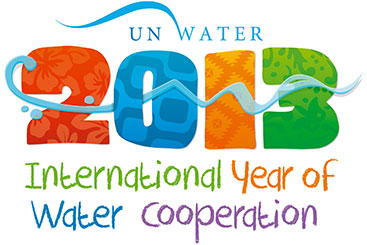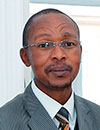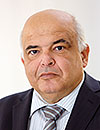2013: International Year of Water Cooperation

In December 2010, the United Nations General Assembly declared 2013 as the United Nations International Year of Water Cooperation. The objective of this International Year is to raise awareness, both on the potential for increased cooperation, and on the challenges facing water management in light of the increase in demand for water access, allocation and services.
The year also aims to highlight the history of successful international water cooperation initiatives. Therefore, Danube Watch takes a look at one of the most important examples of such an initiative: the ICPDR. We wanted to see our work and achievements through the eyes of partners and friends from past and present – and so we asked a simple question: what makes the ICPDR excel in international water cooperation for you?
 “The ICPDR is a binding link between all water-related Priority Areas of the EU Strategy for the Danube Region and therefore a key strategic partner for Priority Area 06.”
“The ICPDR is a binding link between all water-related Priority Areas of the EU Strategy for the Danube Region and therefore a key strategic partner for Priority Area 06.”
Florian Ballnus, Priority Area Coordinator 06 ‘To preserve biodiversity, landscapes and the quality of air and soils’ of the EU
Strategy for the Danube Region, working at the Bavarian State Ministry of the Environment and Public Health in Munich,
Germany
 “To work on the implementation of the Danube Convention in Moldova under the aegis of the ICPDR was for me like gaining advanced environmental knowledge at an international university.”
“To work on the implementation of the Danube Convention in Moldova under the aegis of the ICPDR was for me like gaining advanced environmental knowledge at an international university.”
Tatiana Belous, Head of the Delegation of Moldova to the ICPDR of many years, Institute of Ecology and Geography under the Ministry of Environment and Academy of Sciences of the Republic of Moldova
 “Partnering with the ICPDR greatly amplifies our water protection and conservation efforts in all of our Danube countries as we pursue system-wide sustainability goals.”
“Partnering with the ICPDR greatly amplifies our water protection and conservation efforts in all of our Danube countries as we pursue system-wide sustainability goals.”
Ulrike Gehmacher, Coca-Cola Hellenic, is partnering with the ICPDR through the Green Danube Partnership with the Coca-Cola system, nationally and through the Business Friends of the Danube.
 “Due to the work of the ICPDR, floodplain restoration, fish passages and sturgeon conservation have become issues of basin-wide cooperation.”
“Due to the work of the ICPDR, floodplain restoration, fish passages and sturgeon conservation have become issues of basin-wide cooperation.”
Irene Lucius is the Head of Policy of the WWF’s Danube Carpathian Programme, an ICPDR observer organisation that has partnered the Commission on many projects and activities for years.
 “The ICPDR is world renowned for its leadership in river basin cooperation. Through the partnership with the IRF, we will work towards extending the reach of the ICPDR and champion best practice river basin management in Europe and beyond.”
“The ICPDR is world renowned for its leadership in river basin cooperation. Through the partnership with the IRF, we will work towards extending the reach of the ICPDR and champion best practice river basin management in Europe and beyond.”
Matthew Reddy, CEO of the International River Foundation (IRF), the ICPDR’s main partner in establishing the European Riverprize, presented for the first time on 12 September2013.
 “The involvement of the ICPDR in our Stakeholders’ Forum helped us understand the importance of public participation in a decision-making process.”
“The involvement of the ICPDR in our Stakeholders’ Forum helped us understand the importance of public participation in a decision-making process.”
Ivan Mitrovic, project manager and chairperson of the Stakeholders’ Forum, Directorate for Inland Waterways, Republic of Serbia.
 “What is essential basin-wide? The legal basis, the willingness to cooperate, a common understanding of terms, and actual acting. ICPDR put all this into reality!”
“What is essential basin-wide? The legal basis, the willingness to cooperate, a common understanding of terms, and actual acting. ICPDR put all this into reality!”
Hellmut Fleckseder, active in the ICPDR Secretariat between November 1995 and end of March 2001, and from then on in the Austrian Ministry in charge of ICPDR issues till the end of September 2008
 “The ICPDR to me is a true role model for how to deal with different cultures and economic levels in the Danube region. In my function I am facing similar challenges; working with the ICPDR is therefore most inspiring.”
“The ICPDR to me is a true role model for how to deal with different cultures and economic levels in the Danube region. In my function I am facing similar challenges; working with the ICPDR is therefore most inspiring.”
Christof Hahn, Executive Editor of the bi-lingual water magazine aqua press International, is a long-standing media partner of the ICPDR.
 “Having been involved in the Danube cooperation development for ages, I had the privilege of witnessing the evolution of a river basin cooperation, stakeholder involvement and institutional development that earned international recognition.”
“Having been involved in the Danube cooperation development for ages, I had the privilege of witnessing the evolution of a river basin cooperation, stakeholder involvement and institutional development that earned international recognition.”
Maria Galambos, Ministry of Rural Development, is a member of the Hungarian delegations to ICPDR and UNECE and a national expert in the ICPDR’s Public Participation Expert Group.
 “We were inspired by the ICPDR’s efforts and capacity in garnering the cooperation of the people and countries along the Danube. We are grateful for the agreement to maintain this cooperation, which will benefit both the Danube and the Sungai Perak Rivers.”
“We were inspired by the ICPDR’s efforts and capacity in garnering the cooperation of the people and countries along the Danube. We are grateful for the agreement to maintain this cooperation, which will benefit both the Danube and the Sungai Perak Rivers.”
M.N. Mohd Adnan is Managing Director at Corak Zaman Sdn. Bhd., Malaysia, implementing a sustainable river management project with the Perak State Government. Representatives conducted two study visits to the ICPDR Secretariat in 2010.
 “Many aspects of cooperation under the ICPDR umbrella are also applied in bilateral cooperation and at the national level. Experiencing this helped me a lot in national activities concerning public participation processes in the RBMP [River Basin Management Plan] elaboration.”
“Many aspects of cooperation under the ICPDR umbrella are also applied in bilateral cooperation and at the national level. Experiencing this helped me a lot in national activities concerning public participation processes in the RBMP [River Basin Management Plan] elaboration.”
Elvira Marchidan works for Romania’s national water administration Apele Romane and is a national expert in the ICPDR’s Public Participation Expert Group.
 “Through our twinning programme with the ICPDR, we were empowered to improve some of our initiatives such as the development of awareness through the Orange Senqu River Learning Box, or monitoring of river health through the Joint Basin Survey.”
“Through our twinning programme with the ICPDR, we were empowered to improve some of our initiatives such as the development of awareness through the Orange Senqu River Learning Box, or monitoring of river health through the Joint Basin Survey.”
Lenka Thamae is the Executive Secretary of the Orange River-
Senqu Commission in Southern Africa, which collaborates with the ICPDR on a range of projects since 2007.
 “Good policy is based on sound scientific evidence. The cooperation between our two institutions ensures that the management of the Danube River considers both science and society.”
“Good policy is based on sound scientific evidence. The cooperation between our two institutions ensures that the management of the Danube River considers both science and society.”
Milan A. Dimkic is the Director of the Jaroslav Cerni Institute for the Development of Water Resources (JCI), which has cooperated with the ICPDR in research and projects.





